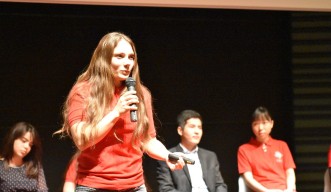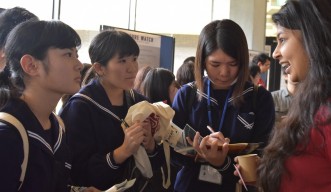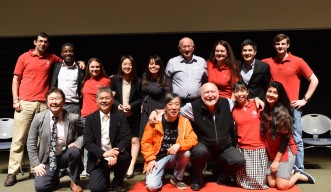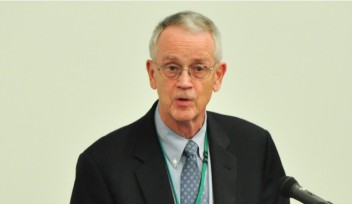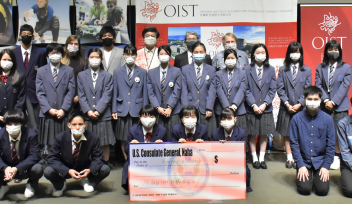‘Future Watch:’ the World in 2046
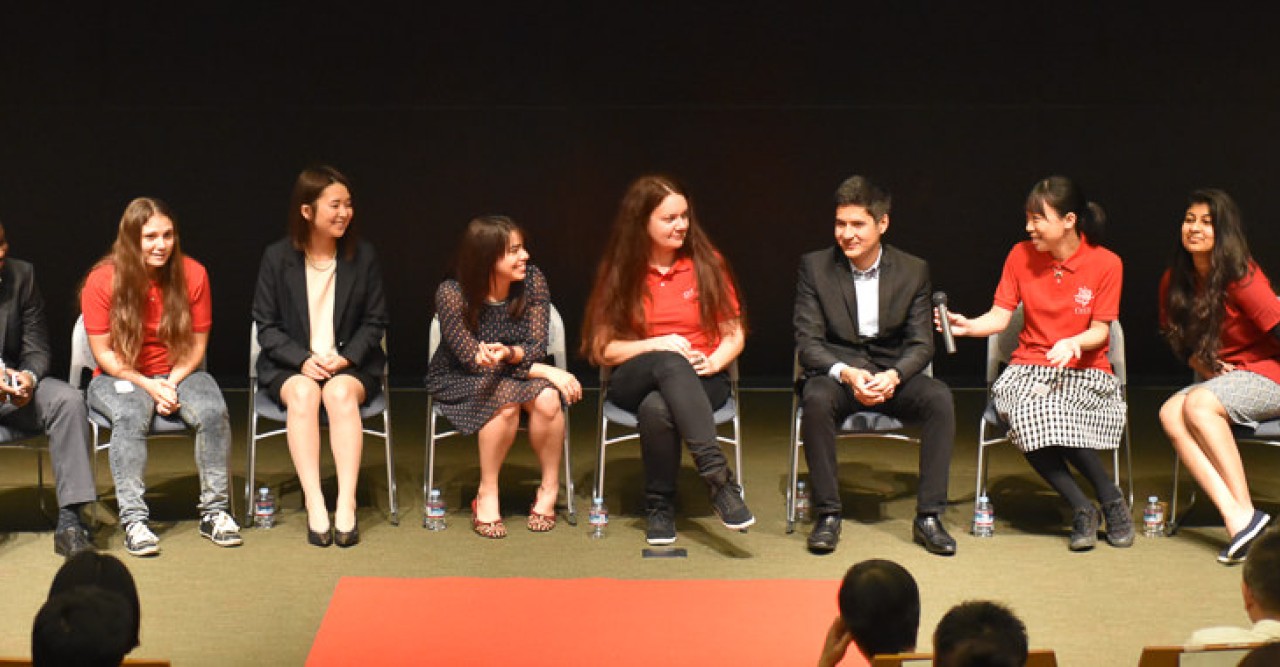
Students from Okinawa Institute of Science and Technology Graduate University (OIST) and Ritsumeikan Asia Pacific University (APU) came together on Sunday afternoon, Feb. 21 in the OIST auditorium to discuss their ideas about how the world should change in 30 years. The event included an international panel of five students from OIST and five from APU, who each presented their point of view about our future to an audience of Okinawan and OIST communities.
The OIST students, Sakurako Watanabe (Japan), Sandrine Burriel (France), Irina Reshodko (Kazakhstan), James Schloss (USA), and Ankur Dhar (USA) brought a scientific perspective and the APU students, Rakhimov Khushnud (Uzbekistan), Alube Martin Otini (Kenya), Carmen Palma (Nicaragua), Rana Itayama (Japan), and Pravini Wickramanayake (Sri Lanka) have a humanities background, which led to many different ideas about the future, but the theme that united all viewpoints was the need for more education around the world.
The topics discussed by the students included: sustainable resources, the aging population, complex thinking, space travel, community development with technology, robotics, artificial intelligence, nuclear security, and poverty.
“Many important topics were talked about,” Watanabe said. “But we all went back to [the importance of] education.”
The event also featured two guest speakers: the famous essayist, blogger, and entrepreneur Mr. Shigesato Itoi and University of Tokyo's Prof. Ryugo Hayano.
“It’s quite rare to have this mix of students speaking together about the world and the future of space travel,” Hayano said. “It is truly a good mix of international students and good interaction with the audience.”
After the talks by the students, the audience voted for the issue they believe was the most important. The number one vote was for prioritizing financial contributions to help poverty, which was raised by APU’s Wickramanayake.
Following the vote, each student had a chance to interact with the audience even further during a poster session at intermission, as well as a Q&A session. Hayano and Itoi then had the chance to offer their insight about the future. Hayano re-iterated the importance of education and urged students to ask the question, “What do you want to be remembered for?” as they went off into the world. Itoi reminded the students of the complexities in humanity and how that can make straightforward ideas, like education, more difficult.
“It is very important for young students and scientists to think about the consequences technological advancements, such as robots, can have on humanity,” Itoi said. He asked the students to equally consider what it would mean for a person to be replaced by a robot in terms of human dignity.
At the end, the audience re-voted on the issues to see if they had changed their minds throughout the discussion. Wickramanayake’s idea about the prioritization of spending on poverty remained as the number one issue, and even garnered an additional 16 votes. However, the biggest takeaway for many participants and attendees was the sharing of ideas from different standpoints.
“I discovered scientists are normal people,” Alube said. “This was a way to see opportunities from a different perspective.”
Hiroaki Hamada, an OIST Ph.D. student, also found that hearing from a non-scientific perspective was helpful.
“It was good to have a talk between the science side and a bit more of the social science side,” Hamada said. “The connection between humanities and science needs to be kept in mind because we have to work together.”
For press enquiries:
Press Inquiry Form










